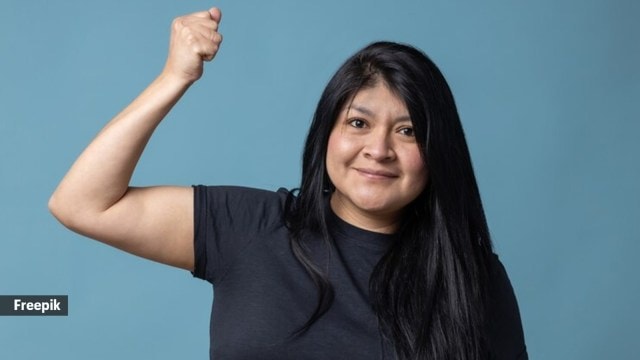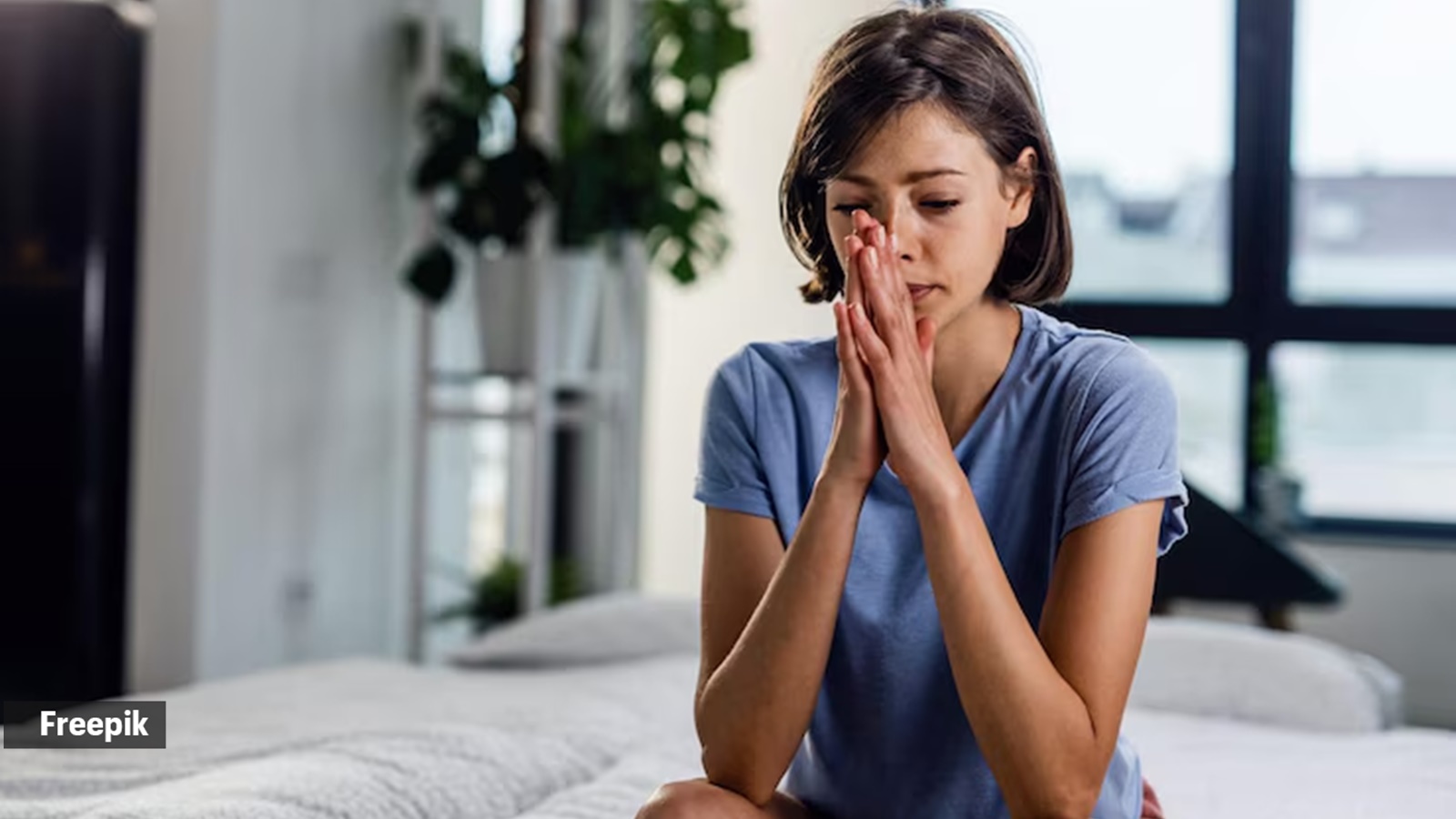📣 For more lifestyle news, click here to join our WhatsApp Channel and also follow us on Instagram
Why the viral TikTok ‘septum arms’ trend is problematic on many levels
Neha Cadabam, senior psychologist at Cadabams Hospitals shares, “These trends, often disguised as ‘harmless fun,’ can have a devastating impact on women's and girls' mental health.
 The origin of septum arms is as bizarre as it is concerning. (Source: Freepik)
The origin of septum arms is as bizarre as it is concerning. (Source: Freepik)TikTok, known for its viral trends and challenges, has once again become the epicentre of a controversial body-shaming phenomenon.
The latest term to emerge from the app’s depths is ‘septum arms,’ a phrase born from a simple algorithm glitch that has morphed into yet another unrealistic beauty standard for women. This incident highlights the platform’s ongoing struggle with promoting harmful body ideals and the speed at which misinformation can spread in the digital age.
The origin of septum arms is as bizarre as it is concerning. Unlike previous body-shaming trends on the platform, this term wasn’t intentionally created by users. Instead, it appeared as a suggested search term on a video by a user named @orlandospeciality that, ironically, criticised body shaming.
Despite its accidental creation, users quickly began speculating about its meaning, ultimately deciding it referred negatively to women with larger upper arms.
Psychological impact of such body shaming trend
Neha Cadabam, senior psychologist at Cadabams Hospitals shares, “These trends, often disguised as ‘harmless fun,’ can have a devastating impact on women’s and girls’ mental health. Imagine being bombarded with images and videos that hyperfocus on specific body parts, highlighting perceived ‘flaws’ and implying that you need to change your body to fit an impossible standard.”
This constant exposure can trigger a whole host of negative emotions and psychological consequences:
Body Dissatisfaction: The more we see these idealised images, the more we compare ourselves to them. This can lead to dissatisfaction with our bodies, even if we were previously content.
Low Self-Esteem: Body shaming erodes self-worth and confidence. It can make you feel inadequate, unattractive, and ashamed of your appearance.
Anxiety and Depression: The pressure to conform to these unattainable standards can lead to heightened anxiety, depression, and even eating disorders.
Social Withdrawal: Feeling ashamed of your body can make you withdraw from social interactions, fearing judgement and criticism.
 Body shaming erodes self-worth and confidence. (Source: Freepik)
Body shaming erodes self-worth and confidence. (Source: Freepik)
Contribution of social media to the spread of body shaming and the promotion of impossible beauty standards
According to Cadabam, social media algorithms are designed to keep users engaged, “and unfortunately, content that generates strong emotions, like outrage or insecurity, tends to get more attention. This means that body shaming trends, which often elicit these reactions, can quickly go viral.”
Additionally, algorithms tend to show users content that aligns with their existing interests and beliefs. So, if you’ve shown an interest in fitness or beauty content, you’re more likely to see posts related to body image, which can create an echo chamber of unrealistic expectations.
The constant exposure to filtered and edited images can also warp our perception of what’s normal and attainable. This can lead to feelings of inadequacy and a relentless pursuit of an ever-changing ideal, she stresses.
If you’re feeling down or insecure because of body shaming trends, remember these important points:
You are not alone: Many people struggle with body image issues. Don’t be afraid to reach out to friends, family, or a therapist for support.
Unfollow and Mute: Curate your social media feeds to follow accounts that promote body positivity and diversity. Unfollow or mute accounts that make you feel bad about yourself.
Challenge Negative Thoughts: When you catch yourself comparing yourself to others or engaging in negative self-talk, challenge those thoughts. Remind yourself of your unique strengths and qualities.
Focus on Health, Not Appearance: Shift your focus from achieving a certain look to prioritising your overall health and well-being. Engage in activities that make you feel good, both physically and mentally.
Practice Self-Compassion: Treat yourself with kindness and understanding. Remember that your worth is not defined by your appearance.
📣 For more lifestyle news, click here to join our WhatsApp Channel and also follow us on Instagram



- 01
- 02
- 03
- 04
- 05
























